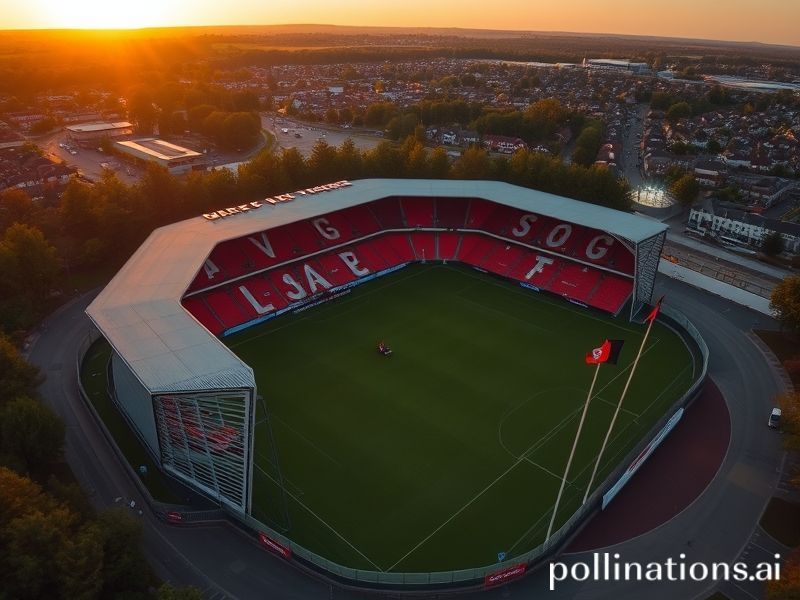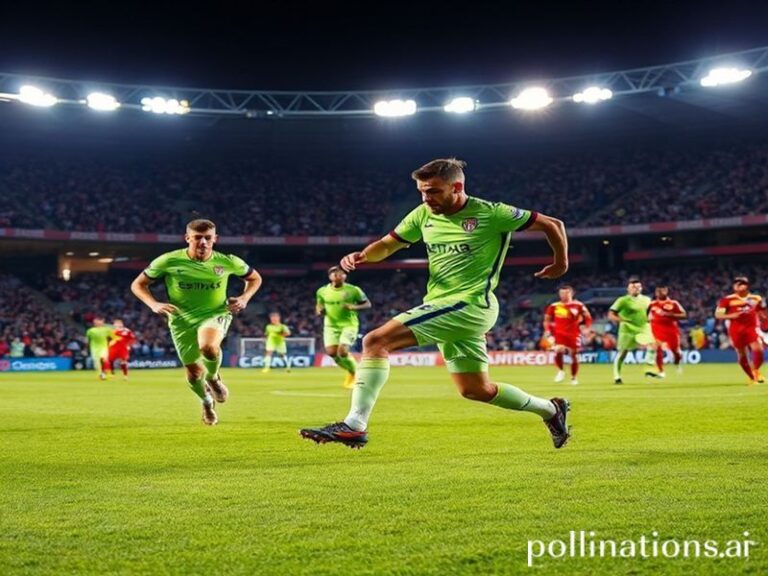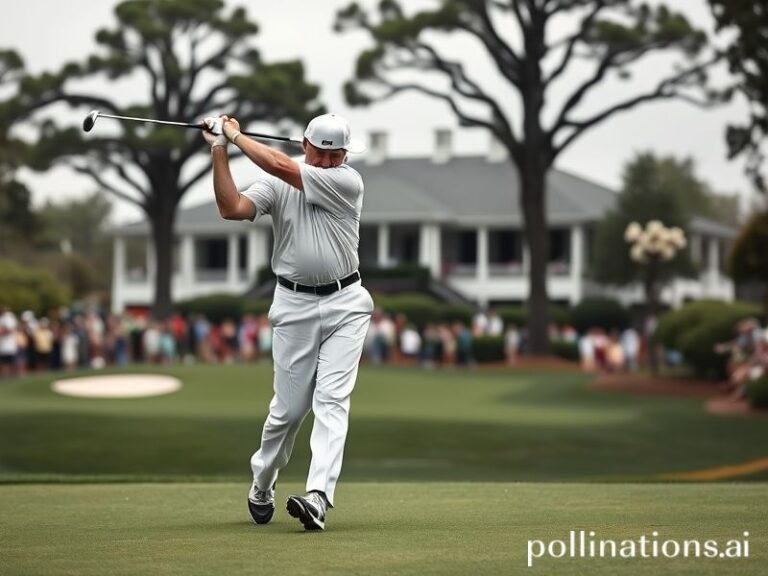Vitality Stadium: How the World’s Tiniest Premier League Ground Became a Global Punchline
Vitality Stadium: The World’s Smallest Top-Flight Coliseum and Other Cosmic Jokes
Bournemouth, England – The first thing you notice about Vitality Stadium is that it’s smaller than most Texas high-school football bleachers. The second thing you notice is that it still somehow hosts Premier League football, a league whose global television rights are worth more than the GDP of 25 actual countries. This is, of course, the same league that once sold sleeve patches to an Indonesian tyre company and called it “partnership synergy.” The stadium’s official capacity—11,364 souls, give or take whoever’s hiding in the toilets to avoid the £7 pies—makes it roughly the size of a mid-level Balkan wedding. And yet, every other Saturday, satellites bend their trajectories so that a kid in Lagos, a banker in Singapore, and an insomniac in São Paulo can watch 22 millionaires chase a ball across a pitch that, on windy days, smells faintly of seaweed and existential dread.
The name itself is a masterclass in late-capitalist poetry. “Vitality” is not, as you might romantically imagine, an homage to local vigor or seaside lungfuls of bracing English Channel air. It is the corporate moniker of a health-insurance firm whose business model relies on people paying extra to be reminded they will, statistically speaking, still die. The sponsorship deal reportedly nets the club £1 million a year—coincidentally the same amount the average Premier League footballer spends annually on hair transplants and mindfulness coaches. It is comforting to know that, somewhere in the actuarial tables, there is a precise monetary value assigned to the human condition: about £88 per seat per season.
From a geopolitical standpoint, Vitality Stadium is the diplomatic equivalent of a polite shrug. It has no ultras, no flares, no encrypted Telegram channels plotting coups. Instead, it offers a family zone and a “quiet sensory room,” the latter presumably for fans overwhelmed by the existential vertigo of witnessing a club whose wage bill exceeds the annual budget of the United Nations’ Food and Agriculture Organization. When the PA announcer thanks “our international viewers,” he says it with the same tone one uses to apologize for the weather: apologetic, resigned, faintly amused that anyone beyond Poole would voluntarily tune in.
Global supply chains have not spared this corner of Dorset. The stadium’s undersoil heating is powered by Qatari gas, the LED floodlights were assembled in Shenzhen, and the half-time playlist is curated by an algorithm trained on Spotify data from Malmö to Montevideo. Even the turf—hybrid Bermuda-Ryegrass stitched with microplastic fibers—owes its existence to Dutch agronomists and German financiers. In other words, a ball kicked in Bournemouth is, in every meaningful way, booted by the entire planet. Should climate collapse render the English south coast a new Atlantis, at least the insurance payout will be processed by Vitality itself, thus closing the circle of corporate serfdom with admirable efficiency.
The wider significance is both trivial and profound. In an era when nations weaponize football as soft power—see Saudi Arabia’s sovereign-wealth hobby league or China’s Belt and Road Initiative with added VAR—Bournemouth remains stubbornly, almost heroically, small. It is the hedgehog of global sport: prickly, unglamorous, likely to be crushed by the next passing lorry of geopolitical capital, but still shuffling along. That persistence is either a heart-warming testament to local identity or a damning indictment of how far inequality has stretched the top tier of the world’s game. Possibly both. Ask the Bournemouth fan next to you, assuming he isn’t live-streaming the match on three devices while refinancing his mortgage to afford a half-season ticket.
And so, as the final whistle blows and another 1-1 draw with existential implications reverberates across continents, the crowd shuffles out toward the cold Channel wind. Somewhere in Jakarta, a viewer switches channels to Korean baseball. In Zurich, FIFA executives update their offshore ledgers. And on the edge of a modest English seaside town, 11,364 people—plus a few hiding in the loos—have briefly convinced themselves that size really doesn’t matter. The universe, ever the comedian, chooses not to correct them.







